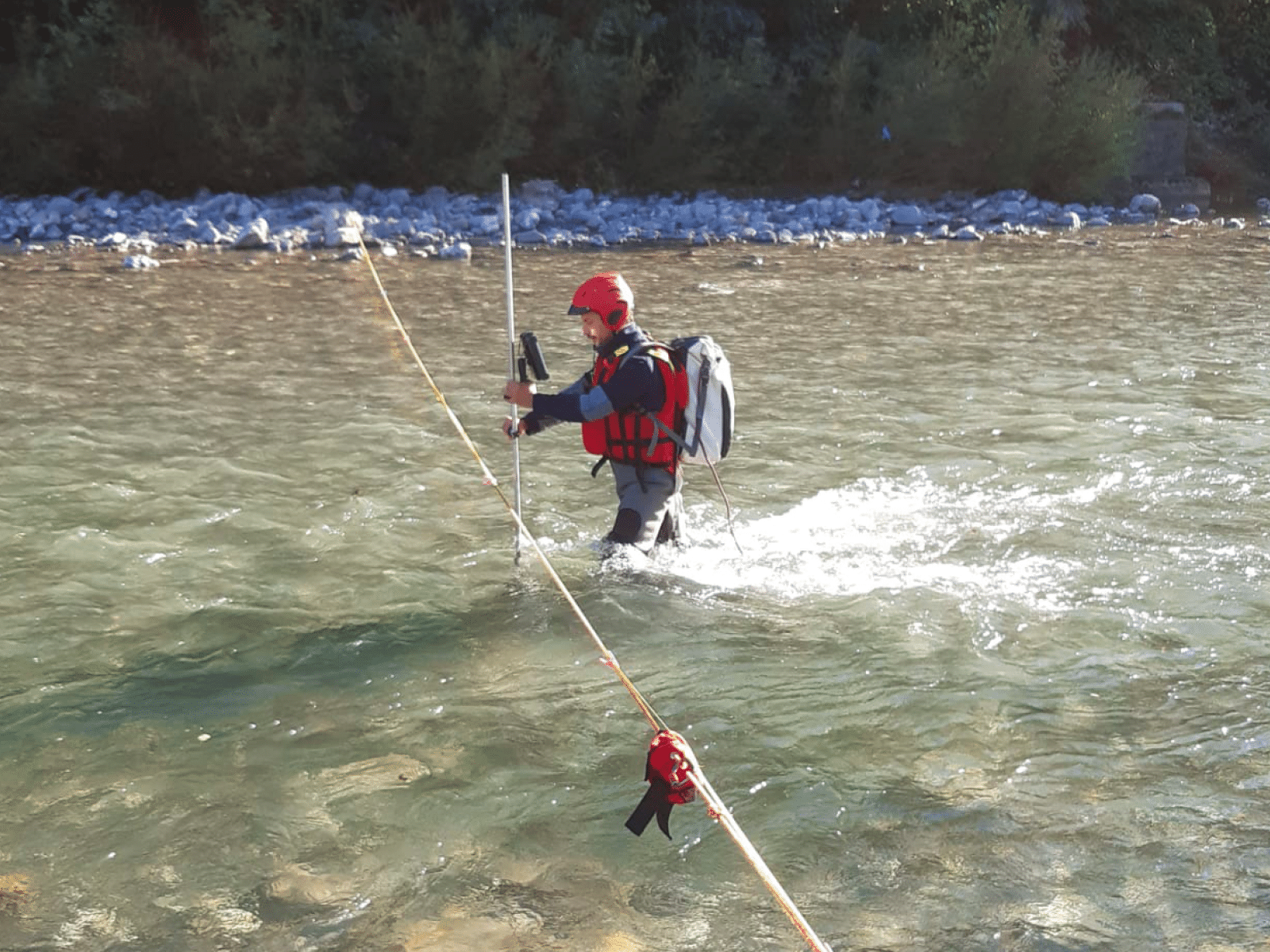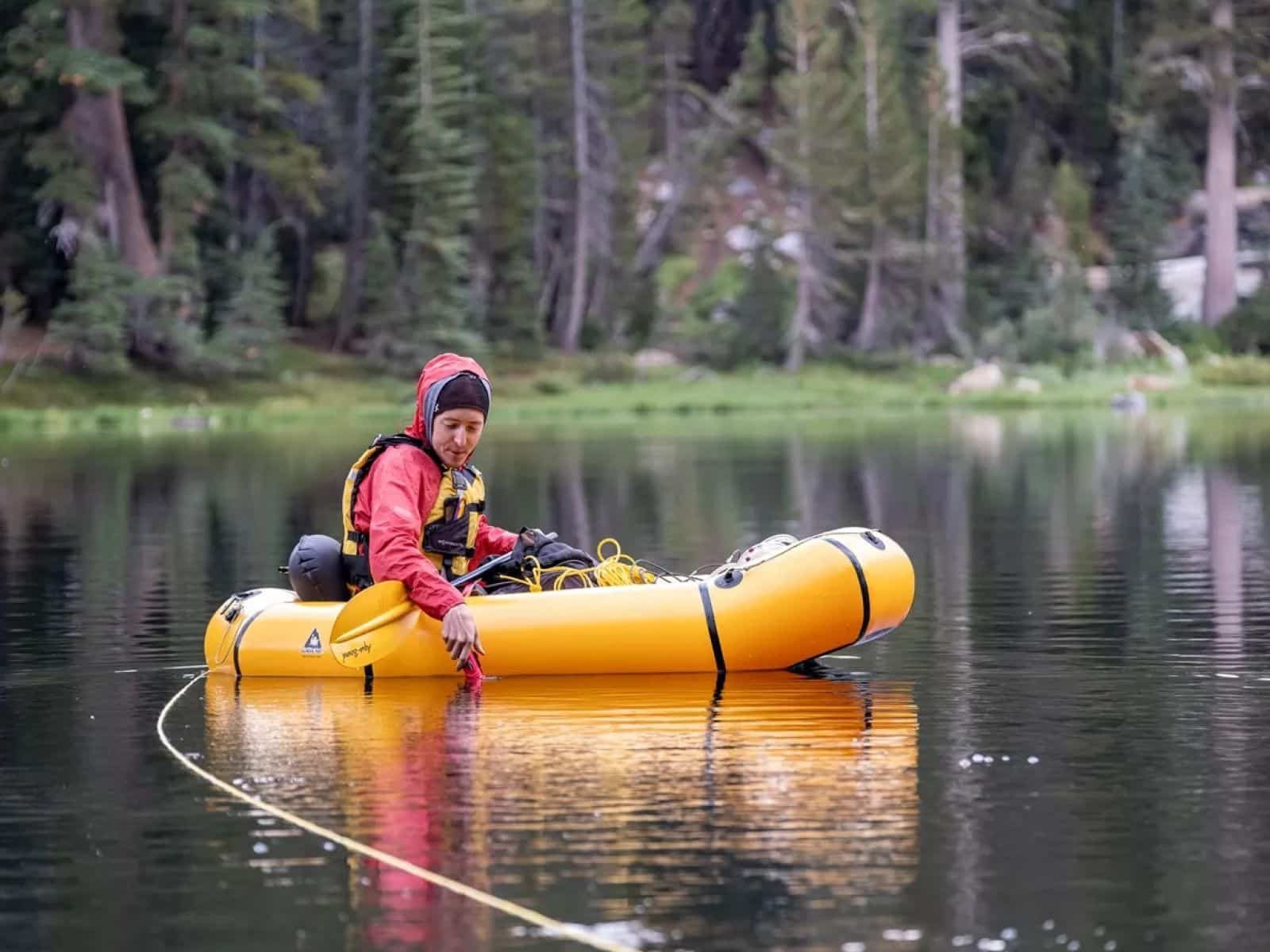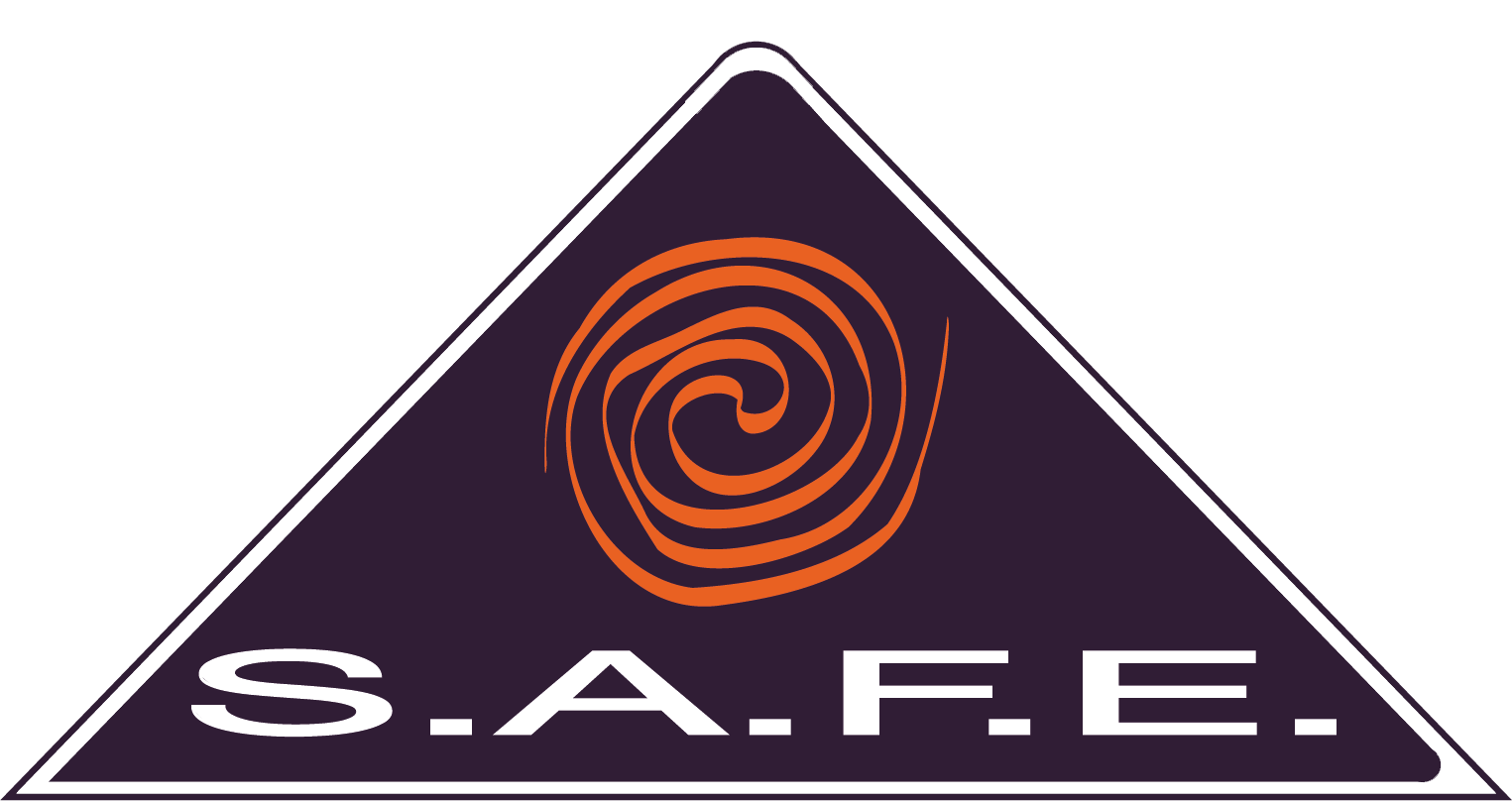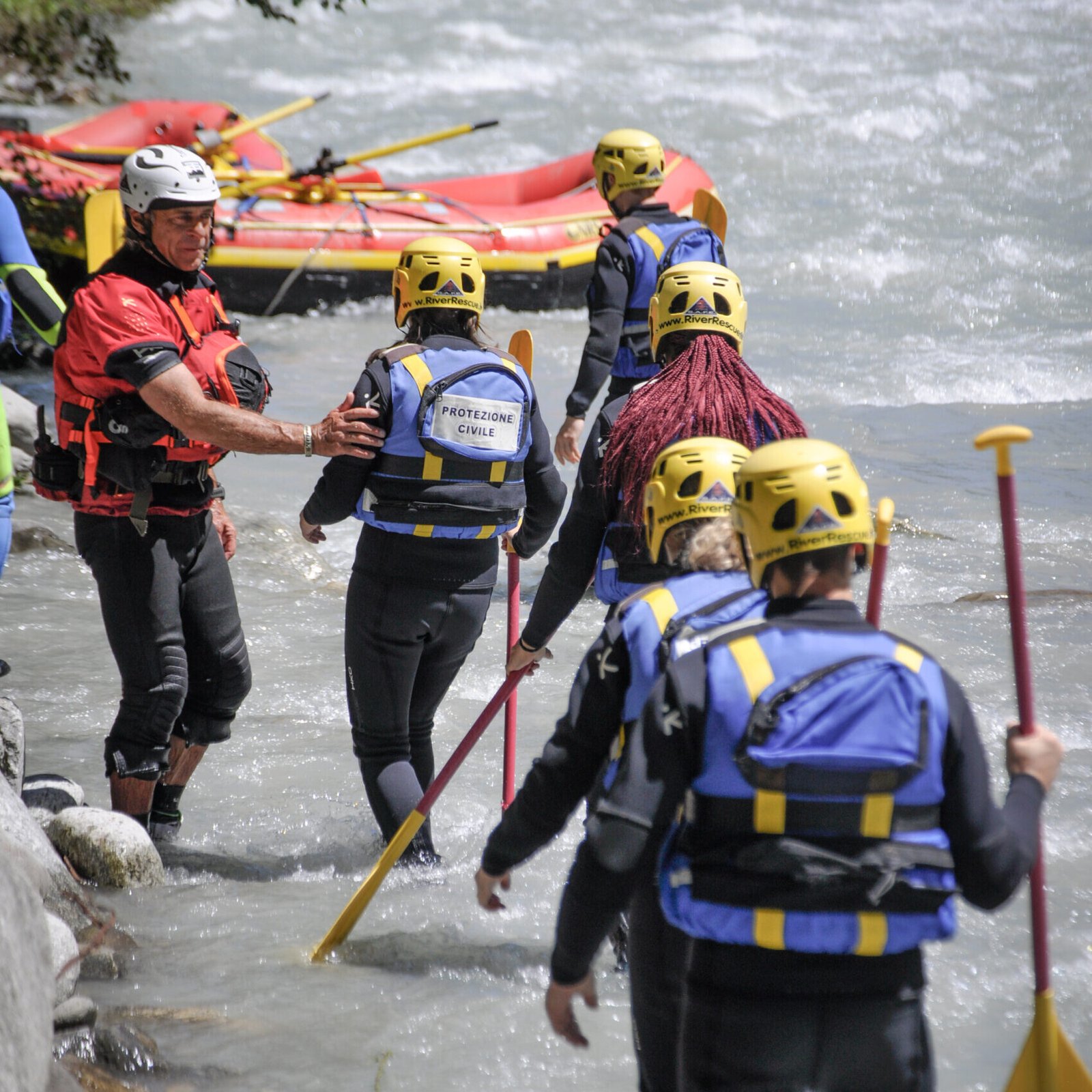SAFE® COURSES
Safety at work for Environmental Professionals and Hydraulic Sector Technicians
Specific training pursuant to Art. 37 Legislative Decree 81/08 and State-Regions Agreement 21.12.2011
I Safety at Work courses are designed for professionals working along the banks and or directly in the riverbed such as:
- Environmental monitoring technicians specialising in Ichthyofauna, Macrobenthos, Macrophytes, IQM, IFF and other ecological assessment techniques.
- Technicians experts in EIA (Environmental Impact Assessment) e SEA (Strategic Environmental Assessment).
- Experts in hydrogeological risk such as meteorologists, seismologists and professionals involved in forecasting and analysing natural hazards.
- Hydroelectric power plant operators which manage water intakes and monitor the functioning of hydraulic structures.
- Workers on river construction sites carrying out construction and maintenance activities in aquatic and river environments.
SAFE® CERTIFICATION - Rescue 3 Europe
Choose the training that suits you
Managers, HRM, RSPP, ASPP, RLS, RLST

Rescue3™ CERTIFICATION
WAS
Water Awareness and Safety
Specific training pursuant to Art. 37 - Legislative Decree 81/08 and State-Regions Agreement 21.12.2011
It is a theoretical/practical course that provides an overview of the safety and management of risks of inland waters (lakes, canals, rivers).
The course takes place dry in the classroom and near the riverbed
It provides the basis for the security management during activities near or directly in the riverbed.
Participants will learn about regulations and best practices for recognising and managing hazards, with an introduction to a management model that will be explored in depth in the SWIW practical course.
6 hours.
(Hours are defined as training hours, which do not take into account breaks and classroom/field travel time - The commitment is 8 hours in total).
Classroom theory and practice (by the river).
No specific experience required.
Ideal for those dealing with management aspects such as managers, HRM, RSPP, ASPP, RLS, RLST.
Dedicated to technicians working close to the water, at a distance of at least 3 metres from the banks, and to operators of construction sites on the river, hydropower plants, schools and communities living in flood-prone areas.
As the standard is constantly evolving, certification WAS valid for 3 years. For maintenance, it is necessary to repeat the entire course or to enter a higher course.
Hydro-morphological measurement technicians, Hydroelectric power plant operators, River construction site workers

Rescue3™ CERTIFICATION
SWIW
Safe Working In Water
Specific training pursuant to Art. 37 - Legislative Decree 81/08 and State-Regions Agreement 21.12.2011
Training course of securing for technicalthose working near or directly in the riverbed.
12 hours (2 days).
The commitment is 8 hours in total per day.
(Hours are defined as training hours, which do not take into account breaks and travel time to the classroom/work field).
Classroom theory and in-water practice
Good physical condition and swimming skills. No specific experience required.
Technicians carrying out biological and chemical sampling, monitoring and hydro-morphological measurements in riverbeds, operators of hydroelectric power plants and anyone who needs to work near or directly in riverbeds.
As the standard is constantly evolving, the SWIW certification is valid for 3 years. For retention, it is necessary to repeat the entire course or to enter a higher course (e.g. SRT, WRT).
Environmental technicians, forest rangers, park rangers, municipal police, civil defence

Rescue3™ CERTIFICATION
Small Boat Safety
WBO-NM
Specific training pursuant to Art. 37 - Legislative Decree 81/08 and State-Regions Agreement 21.12.2011
Training course of securing for technicians carrying out biological and chemical sampling and monitoring in lakes/rivers.
12 hours (2 days).
The commitment is 8 hours in total per day.
(Hours are defined as training hours, which do not take into account breaks and travel time to the classroom/work field).
Classroom theory and in-water practice
It is necessary to have attended the SWIW course or other higher courses.
Technicians carrying out biological and chemical sampling and monitoring in lakes/rivers, municipal police, forest rangers, provincial rangers, park rangers, civil protection.
As the standard is constantly evolving, the WBO - NM certification is valid for 3 years. For retention, it is necessary to repeat the entire course or to enter a higher course (e.g. SRT, WRT).
SWIW - SPECIFICALLY FOR HARP

Rescue3™ CERTIFICATION
Safe Working In Water
SWIW
Specific for ARPA
Specific training pursuant to Art. 37 - Legislative Decree 81/08 and State-Regions Agreement 21.12.2011
Solutions for monitoring technicians (Ichthyofauna Macrobenthos, Macrophytes, IQM, IFF...), environmental technicians (EIA, SEA....), assessments hydrogeological risk (meteorologists, seismologists...), flow measurements.
12 hours (2 days).
The commitment is 8 hours in total per day.
(Hours are defined as training hours, which do not take into account breaks and travel time to the classroom/work field).
Classroom theory and practice.
Good physical condition and swimming skills. No specific experience required.
This is the SWIW course developed 'ad hoc' for ARPA needs.
As the standard is constantly evolving, the SWIW certification is valid for 3 years. For retention it is necessary to repeat the entire course or to enter a higher course. (e.g. SRT, WRT).
WBO - NM Specific for ARPA

Rescue3™ CERTIFICATION
Small boats
WBO - NM
Specific for ARPA
Specific training pursuant to Art. 37 - Legislative Decree 81/08 and State-Regions Agreement 21.12.2011
Training course of securing for ARPA technicians carrying out monitoring of ichthyofauna, macrophytes, macrobenthos, IQM, IFF, control of drifts and more, in the lake/river using small boats.
12 hours (2 days).
The commitment is 8 hours in total per day.
(Hours are defined as training hours, which do not take into account breaks and travel time to the classroom/work field).
Classroom theory and practice.
It is necessary to have attended the SWIW course or other higher courses.
ARPA technicians.
As the standard is constantly evolving, the WBO - NM certification is valid for 3 years. For maintenance, it is necessary to repeat the entire course or to enter a higher course.
# FLOOD RESCUE # RIVER RESCUE #RESCUE3 #SAFE
MILESTONES
Our strengths
Localisation
You can take the courses at home. S.A.F.E.® is organised to carry out the courses everywhere, provided the right environmental conditions are in place!
Standard
The Rescue 3 standard is taught in the same way in 72 countries worldwideIt is recognised by OSHA, NFPA, DEFRA.
Simplicity
We teach simple and effective techniques, achievable with essential equipment.
We prioritise knowledge of the environment in which we operate.
We do NOT sell equipment
Training, we help companies develop technical equipment, but we are NOT tied to any brand, precisely in order to have the freedom to choose the ideal equipment parts for each specific task.
Learning through play
River rescue means knowing how to move well in the water and expand our comfort zone.
This is done through many exercises and playing. Our courses are theoretical, but above all practical
We learn with a smile!
Consultancy
We offer solutions for the specific critical issues you have to respond to. Whenever possible, we try not to disrupt your habits and adapt to the equipment you usually use, as long as it complies with current regulations. We always seek the simplicity.

DO YOU WANT TO PARTICIPATE IN THE COURSE?
FOR INFO E RESERVATIONS
We are available to answer your questions and help you to planning your Rescue SAFE® course
Have you already had a look at our activities and want to know more? Go to enquiries and bookings call or send an e-mail, we will do our best to get back to you as soon as possible.





